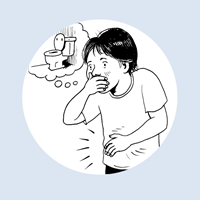Norovirus
About norovirus and how it spreads. Find resources and materials on norovirus.
About norovirus
Norovirus is a very contagious virus that causes vomiting and diarrhea. It can also cause swelling of the stomach or intestines, also known as gastroenteritis. It spreads when someone who is sick touches surfaces, food, or other items that touch people’s mouths. It is the leading cause of food poisoning in the U.S.
It is sometimes called the “stomach flu” or a “stomach bug.” However, the flu is not the same as norovirus.
A person usually sees signs of norovirus 12 to 48 hours after exposure. Norovirus can cause nausea, stomach pain, fever, headache, and body aches.
Washing your hands, cooking food thoroughly, washing fruits and vegetables, and cleaning surfaces regularly can help to prevent spreading norovirus.
Norovirus information sheet (2.3 MB)
This info sheet goes over the basics of norovirus, including the symptoms, how it spreads, how to avoid getting sick.
Available in the following languages:
አማርኛ - Amharic (1.5 MB) | 繁體字 - Chinese, Traditional (1.6 MB) | English (2.3 MB) | 한국어 - Korean (1.5 MB) | Русский - Russian (1.5 MB) | Af Soomaali - Somali (1.5 MB) | Español - Spanish (1.5 MB) | Tiếng Việt - Vietnamese (1.5 MB)
Resources
- Information about norovirus, CDC
- Norovirus Outbreak Management Toolkit (280 KB), Washington Integrated Food Safety Center of Excellence
Tools for norovirus outbreak management, including checklists, testing information, and educational tools. - Norovirus Prevention and Control Guidelines for Healthcare Settings, CDC
Norovirus guidelines in healthcare settings, including recommendations for isolation precautions, hand hygiene, and PPE.

 Translate
Translate
